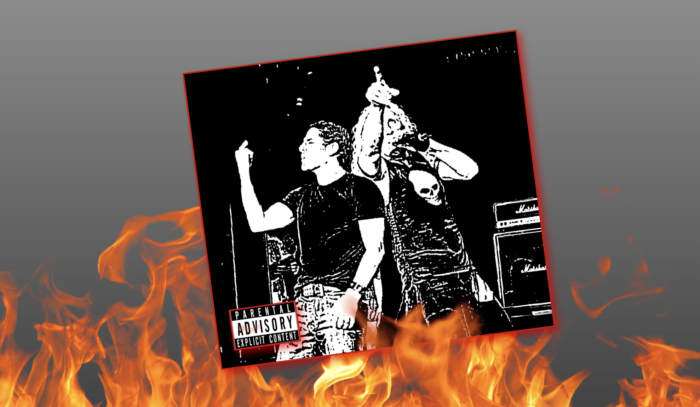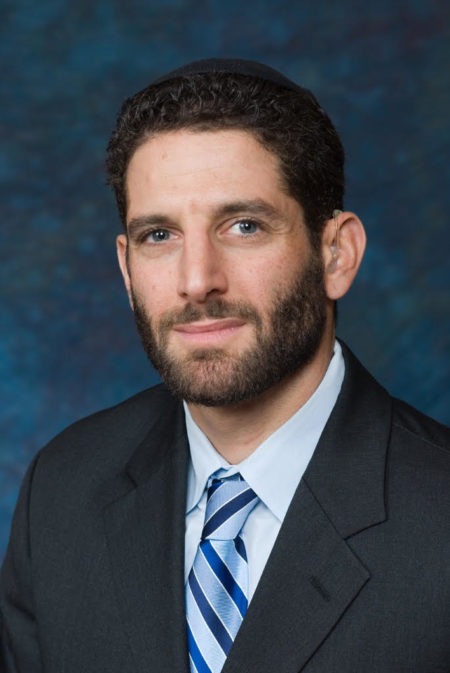
“The Deaf community is incredibly complex and incredibly diverse. … I think we need to be really clear about shifting people’s expectations and takeaways from the film.”
Sound of Metal drummed up six Oscar nominations—including Best Picture and Best Actor—for this year’s Academy Awards by depicting communities that are rarely seen on the big screen at all and even less frequently with respect: Deaf culture, and metal and punk subcultures. (The film won Best Sound and Best Film Editing.)
Filmed largely in Greater Boston, the drama follows Ruben (Best Actor nominee Riz Ahmed), a drummer in a rock duo, as he faces the sudden loss of his hearing. (Most reviews call him a heavy metal drummer due to his thunderous beats and the movie’s title, though his “Please Kill Me” tattoo and Rudimentary Peni T-shirts are pirate flags waving from the masts of punk rock.) Grudgingly entering an addiction recovery program for people who are Deaf, Ruben quickly stirs tension in that culture between those who embrace Deafness and those who use cochlear implants, devices that plug into auditory nerves to create a form of hearing.
Most of the film’s praise comes from hearing reviewers who show no signs of having banged a head. For a more intimate review, we went to Greater Boston’s “metal rabbi,” Rabbi Darby Leigh of Concord’s Congregation Kerem Shalom, who is Deaf.
Raised in New York City’s metal and punk crucible of the 1980s—like this writer, he nearly got kicked out of school for a Dead Kennedys T-shirt—Leigh befriended such legendary heavy bands as Jane’s Addiction and Twisted Sister, performing American Sign Language duets onstage with them and becoming rabbi to members of the latter group. He also performed in the National Theatre of the Deaf, leading to lifelong acting connections that include Sound of Metal actress Lauren Ridloff.
Leigh shared his own old-school metal tales and offered his thoughts on the movie’s quasi-religious parable about Ruben’s journey through different “sounds of metal” and the world of silence.
“I love the exposure that Deaf community and Deaf culture are getting,” he says. At the same time, Leigh emphasizes the hearing culture should know “it is not a movie about Deafness.” “The story,” rather, “was about identity and identity transformation.”
This writer is hearing and does not use sign language, while Leigh uses hearing aids and uses both sign and spoken language. The following interview was conducted on Zoom in spoken language with the occasional throwing of metal horns. It has been condensed and edited for length and clarity, and contains some plot spoilers.

How did you get into metal music? What was its appeal?
I was born profoundly Deaf. Both of my parents are profoundly Deaf as well. They made the decision when I was born to attempt to raise me with an all-auditory approach to training and education, which is a philosophical approach to how you might raise the Deaf child, trying to teach them speech and listening skills using assistive listening devices, hearing aids, cochlear implants like you saw in the film, and different devices.
You know, there are pros and cons to everything in life. There are challenges to that approach. My parents wanted to start with that approach. Because, like all parents they wanted their child to have as many options and opportunities in life. And they knew that if I could communicate easily—well, relatively easily—with hearing people that I would have that many more options and opportunities available to me. So they decided to employ that approach, a lot of which involved putting hearing aids on me when I was very young, and speech and auditory therapy and training.
The ability to utilize residual hearing is a little bit like a muscle. … The more you exercise it, the stronger it gets, the more you can do with it. So the audiologists and speech therapists were constantly encouraging my parents to have me “practice listening”—you listen to everything all the time, all day long. So the audiologist, when I must have been around 8, 9, 10 years of age, said, “You know what, you should expose Darby to music.”
Again, my parents are Deaf—there’s no music player, there’s no turntable in the house, there’s no vinyl, there’s no video, there’s nothing. And I remember them buying like a 1970s stereo cabinet. … You got a turntable on one [shelf], radio on another, tape deck, another space on the bottom for the records. Deaf couple—they have no idea what to do with it. So they went out and bought some records … Broadway shows. I sat there and it didn’t do anything for me. Eventually it was like trying to get your kid to practice piano. You know, the stereotypical attempt to get them to practice an instrument, like, “Go practice piano.” “I don’t want to practice piano.” Getting me to practice listening was the same thing. So finally this went back and forth for a number of months and eventually my mom said to me, “Look, the audiologists think it would be a really good idea if you would practice listening and I don’t like having a fight with you and struggle with you, so I’m going to take you to a music store and I’m gonna let you pick out something that you want to listen to, alright?”
So we walk up into a music store that was all vinyl and cassette tapes. We had no idea what we’re doing there. I’ve never been in a music store before in my life. So then an angel comes up to us, in the form of a college kid who was probably just working in the store. This angel of God takes one look at me and goes, “I think I have something that you might like.” [He] disappears among the rows of cassette tapes and albums, and comes back with two cassette tapes and puts them both in my hands. In my left hand, I got Twisted Sister’s “Stay Hungry.” And in my right hand, I’m holding Motley Crue … I look at both of these, I look at my mother—I’m 11 years old—and I go, “I want these!” On “Stay Hungry,” you got [singer] Dee Snider holding the cow bone screaming at the camera, and the other one is Motley Crue … four dirty guys in black leather. What’s not to want? My mother said, “Will you practice?” And I said, “Yeah, I’ll practice!”
And so the audiologists think that it was in fact, ironically, my engagement with heavy metal helped my ability to use my residual auditory muscle. Most kids listen to metal at big volume and they lose hearing. [And emotionally, the appeal was] having an outlet for rage, aggression, anger, experience of being different—whatever it might be.
I’ve often said that getting into metal when it was still a secret subculture was like a religious experience. Was it like that for you as someone who is now literally a religious leader?
For sure, going to concerts were my earliest religious experiences, and I found God in a mosh pit. A mosh pit was a powerful experience for me in my teenage years, like, pre-Nirvana. I sort of feel like the mosh pit experience up until Nirvana was a certain type of cultural experience. There was a brotherhood. There was a connection. There was a community experience. There was a ritualistic rite of passage component to it. Nirvana represents that bridge moment where, because they went so big, they went so mainstream, you had the football player and the frat boy … all jumping in the pit, and not really understanding the history of it, not understanding the purpose of it, not understanding what the form of dance was, but using it to just be drunk and flail about and punch people.
I grew up Jewish … I grew up Deaf. I was always the kid that was different. I was the “handicapped kid,” the kid who was the outcast. So my early adolescent years were definitely defined by a lot of experiences of being different and a lot of anger and rage about that. And heavy metal and punk gave me, ironically, what is a really healthy outlet for a place to put all that anger, that aggression. Headbanging, the mosh pit, all of that, is an opportunity to take all the pent-up energy that we had … and a place to put it, a culture, a community of people that understood it. You may not be the football player, you may not be the homecoming king, you may not [be] whatever, but you’re tough and you had pride in being you. And I got that in spades from, you know, Motorhead, Metallica, Megadeth, Anthrax, Slayer, Twisted Sister. Heavy metal saved my life, man.
Imagine being Jewish and being a Dead Kennedys fan, and they come out with a song called “Nazi Punks Fuck Off.” Right?!
Let’s talk about Sound of Metal. The movie shows someone journeying in the Deaf, hearing and metal/punk cultures. What did you think of the movie?
I thought it was fabulous. I thought it was really well done. It was a powerful experience for me as a Deaf individual to watch it. At the same time, in my opinion, it is not a movie about Deafness. The story was about identity and identity transformation. What happens to a human being who loses a sense…? It’s a paradigm shift—it’s not even paradigm-shifting, it’s paradigm-exploding. All the more so because the guy was a musician. And you know how powerful music culture is for identity. I understand that, too. So the notion that all of that is taken away from him, essentially overnight, and he has to kind of find his way to a new identity. And you’re left, as the viewer, with questions about, Can he do it? Is he gonna find his way someplace new? Or not? That’s what the film was about.
He got introduced to other folks who don’t hear, who are Deaf, so Deafness, as a community and the culture, pops up in a film in a very limited sort of way. But ultimately, he’s not that. He’s not that because he chooses not to be that. He leaves—he wants the cochlear implant. He wants something different. And there are communities of Deaf individuals with cochlear implants who also are not part of the signing Deaf community. The Deaf community is incredibly complex and incredibly diverse. And the film doesn’t give you that … So I get nervous when I hear people talk about this film. I think we need to be really clear about shifting people’s expectations and takeaways from the film. It wasn’t about Deafness. And what you learned about Deafness, it’s a very small piece of what there is to learn.
The movie had some elements that centered on hearing viewers, such as the Oscar-[winning] sound design’s attempt to imitate the experience of hearing loss and cochlear implants. Did the movie feel true to the Deaf culture it depicts?
So, I did not know, until a month or so after I saw the film, the degree to which the soundtrack creates an auditory experience for the hearing viewer. I actually learned that because my sister sent me a review of the film that was a review of the soundtrack. I had no idea that was going on. It makes perfect sense. That’s brilliant on some level, right?
The one piece not done well was the whole experience of the main character getting a cochlear implant. Nobody would get a bilateral implant right off the bat like that. There was just stuff in there that was not accurate. I don’t begrudge the film that—it was a device to tell a story. My concern is that people not walk away thinking that that’s how you get a cochlear implant—you walk in, pay cash, [say], Drill a hole in my head. But for the piece at the school for the Deaf, the program for the Deaf—that piece was done really, really well. There’s a lot that was accurate about that.
The controversy, if there is one, has to do with casting of Paul Raci [who was nominated for Best Supporting Actor] as a character because he’s hearing and plays a Deaf character. It’s kind of a sore spot in the Deaf actor community when hearing actors get cast to play Deaf roles. I see both sides of this one, because his character was supposed to be someone who was hearing and then became Deaf in Vietnam … and the actor happens to be a child of a Deaf adult. So he is deeply connected to the Deaf community. He gets a pass in my personal book. There are some people who are angry about that. I got bigger things to be angry about. He’s a good guy.
I don’t want to pretend to represent anyone other than myself. But anecdotally, peers and friends and colleagues who talk about the film [say it is] really well done in its portrayal of the Deaf community in that little slice of what we saw. Again, it was a slice. There is a lot more to the Deaf community and Deaf culture, but for that slice, it did it really well. It did it without the sentimentalization. It did it without the disability porn. There was something satisfying about having reality, seeing yourself.
I liked the ending of the film—that it wasn’t pat. It was the beginning, not the ending.
I don’t know if this was the filmmakers’ message, but just from coming from my life experiences, religious experiences and spiritual experiences, of meditation, of chanting, of music, and my experiences of the world of silence, is that the world of silence has a great deal to offer human beings. We’re so driven to crave stimulus. In our society, we’re fed by the capitalist beast to desire and to crave stimuli—media, social, auditory, visual, commercial, tactile, objects, materialism. The world of silence is a cessation of all that. It’s nirvana. It’s a place of complete inner peace and contentment, which is ultimately what I believe human beings are striving for.
Everybody says they want to be happy, but if you try to break that down, nobody really knows what that means. And what I think people really want is, they want to be content. I don’t think that we all need to go live in monasteries and, you know, live on the mountaintop and be a monk. I think we live in the real world. But we want to be able to inhabit that place of peace and contentment even as the storm continues.
I think it would be premature to say that [Ruben] got there, but I think at the very end of the film, we saw him getting his first taste of that.
John Ruch is managing editor of the Reporter Newspapers in Atlanta, Georgia, and former editor of the Jamaica Plain Gazette. His freelance writing recently has appeared in such publications as the Washington Post and the Seattle Times. In what remains of his spare time, he writes fantasy novels.

